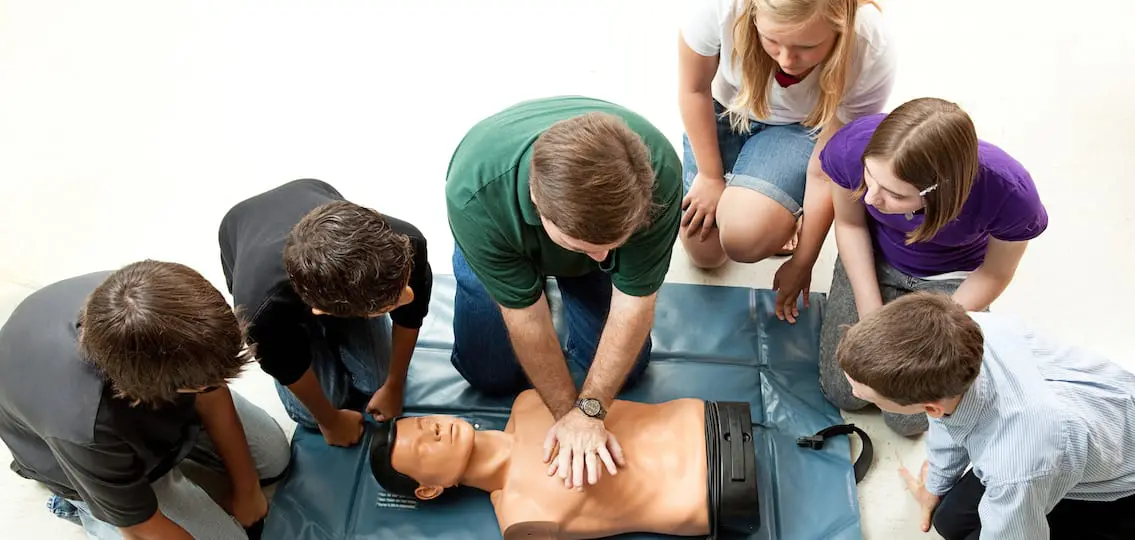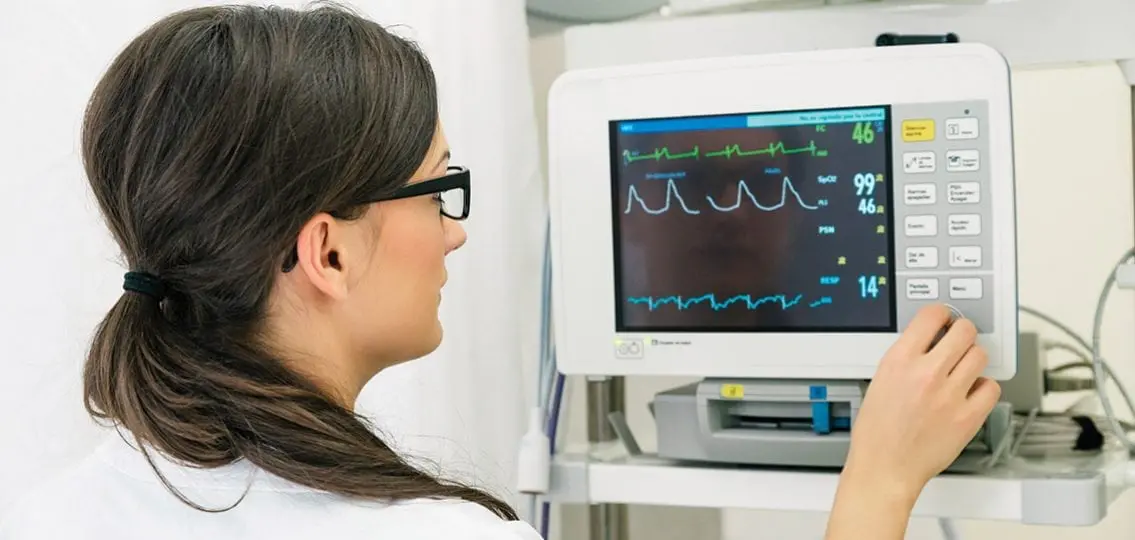Amid a community-based push for routine electrocardiogram screening, there’s no medical consensus that it saves lives.

The stories are heartbreaking. A high school or college athlete with no known health conditions collapses and dies during an athletic event or practice. Only then do their parents learn that the teen had a heart condition that put them at risk for sudden cardiac arrest. Each year in the U.S., about 75 athletes between the ages of 13 and 25 die following a cardiac episode.
Christiana Jones hopes she’s less likely to be one of those grieving parents. An electrocardiogram (EKG) detected a genetic heart condition in her daughter, Eva, age 10. This led to the discovery of the same disorder in her older two children. Because of the diagnosis, the Shaker Heights, Ohio, mother manages their conditions through a daily medication regimen. This allows them to continue their participation in competitive sports.
“You almost always find out after a tragic event,” Jones said. “Finding out beforehand is such a gift.”
Jones now supports mandatory heart screening for high school athletes and more. This sentiment is shared by a growing number of organizations and foundations that offer free or low-cost screenings to young athletes.
But medical experts say there’s no consensus that routine EKGs in children and teenagers will reduce the number of deaths caused by sudden cardiac arrest. They note that EKG testing can produce false diagnoses or miss conditions that could lead to a cardiac incident.
In 2014, the American Heart Association and American College of Cardiology released a joint statement advising against mass screenings in young people, citing a lack of consistent standards across the United States and limited data on the number of lives saved as a result of testing.
“Sometimes it is not clear whether the patient is truly at risk with subtle findings, even after extensive evaluation,” said Dr. Timothy Knilans, a pediatric cardiologist and director of clinical cardiac electrophysiology and pacing at Cincinnati Children’s Hospital Medical Center. At the same time, “a normal EKG does not eliminate the risk of a life-threatening event.”
In other words, test results don’t always provide clear answer.
Knilans says a screening can be beneficial for higher-risk patients. These include those with a family history of sudden death under age 50, passing out with exertion, or cardiac abnormality on a routine physical examination. Those considered low risk who still want to pursue EKG screening should do so “with the knowledge that the likelihood of a significant finding is low,” he said.
Jones’ case illustrates both the potential benefits and limitations of widespread EKG screening. Her daughter first told a school nurse last October that she wasn’t feeling well. The nurse began to suspect a potential heart problem when Eva’s blood pressure remained high all day. Later that day, Eva began experiencing chest pain, and a pediatrician ordered an EKG that flagged an abnormality.
Subsequent testing with a cardiologist led to a diagnosis of Long QT syndrome. This describes a heart rhythm abnormality that causes chaotic heartbeats often triggered by significant physical activity. But EKG screenings of Jones’ oldest two children, Logan, 15, and Hudson, 12, came back normal. Without Eva’s diagnosis, Jones wouldn’t have known to pursue genetic testing, which ultimately detected Long QT syndrome in both boys.
“It can be fatal to athletes, and my three children who had it were athletes,” said Jones. She learned through genetic testing that she was a carrier. “Discovering this was a complete, utter fluke.”
Like Jones, Julie Walker wants all parents to have access to routine screening. The Central Pennsylvania mother started the Peyton Walker Foundation in honor of her daughter, Peyton, who died in 2013 at age 19 from sudden cardiac arrest due to hypertrophic cardiomyopathy, a genetic heart condition. Walker and her three children all have the disorder. The children were all on medication to manage the disease, including Peyton.
Of the 1,700 children the foundation screened, about five percent were flagged for abnormalities that resulted in further testing and the discovery of genetic disorders that affected other members of their families. With that information and a treatment plan, she says they’re less likely to suffer a serious cardiac episode, potentially saving lives.

Walker is grateful that she knew about her three children’s heart condition, even if she couldn’t save Peyton. “We thought we had done everything right, but at least we knew,” Walker said. “What about all the other parents who don’t know?”




